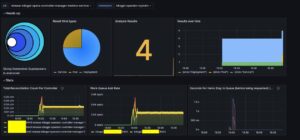The phenomenon of Black Friday and its expansion to the so-called Black Week have shown their ability to impact the stock market both in the short and long term. This impact is reflected in consumer spending patterns, retail results, and more general economic indicators. According to analysts at Freedom24, the immediate performance after Black Friday can act as an indicator of stock market behavior in the subsequent months.
Specifically, it is stated that if the S&P 500 index increases by 1% or more in the week following Black Friday, an average return of 3.9% is usually observed in the following three months. Conversely, if it experiences a decline, the average return tends to drop by 4.6%. This correlation suggests that strong sales during Black Friday can boost market confidence, generating sustained growth.
In the short term, this massive shopping event typically triggers an increase in the stock prices of retail companies reporting high sales volumes. The year 2023 was exceptionally positive, reaching a record sales figure of $9.8 billion. However, it has been observed that the Monday after Black Friday is characterized by volatility, with an average loss of 0.23%, indicating that while certain sectors experience a rebound, the overall market could face a correction due to investor caution.
During the following week, major indices, including the S&P 500, tend to exhibit positive behavior, with an average increase of 0.63%. In this period, approximately 66% of the gains are profitable, suggesting that significant consumer spending drives the market. Sectors like technology, with companies like Amazon and Apple, often benefit from the increase in holiday purchases, which also impacts logistics and courier companies.
From a long-term perspective, the immediate impact of Black Friday can be a signal of future market performance. The strength of sales also reflects broad economic confidence and can influence the Federal Reserve’s decisions regarding interest rates. Vigorous consumer spending could herald a strong GDP, which could lead to restrictive monetary policies if inflation is not controlled.
In summary, Black Friday and the holiday period play a crucial role in the profitability expectations of the last quarter, affecting various sectors and shaping potential economic growth. For investors, this period offers early indications of consumer strength and general economic trends, suggesting the importance of maintaining a diversified portfolio in the face of potential volatility from these events.
Regarding Freedom24, it is the European subsidiary of Freedom Holding Corp., an international investment group that provides access to a wide range of securities and complies with the highest investor protection regulations in the EU.
It is important to remember that investing involves risks, and although past trends provide references, they do not guarantee future returns. Thorough research is recommended, and if necessary, consulting with a qualified financial advisor.
via: MiMub in Spanish










